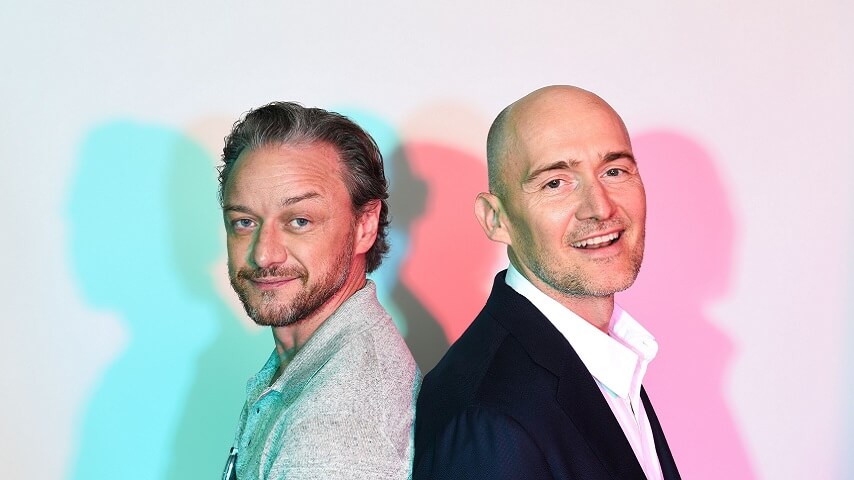Speak No Evil director acknowledges trailers show "more than filmmakers want"
James Watkins acknowledges directors would like trailers to show off less of films. "And then they go, 'Well, yeah, but no one’s going to see your movie.'"
Photo: James McAvoy and James Watkins (Credit: Vivien Killilea/Getty Images for IMDb)
Even if you weren’t familiar with the premise of James Watkins’ Speak No Evil from the fact that it was a remake of an existing movie—Christian Tafdrup’s Danish horror film of the same name—you certainly were by the time you got to the end of the movie’s first trailer. After all, the promo, released five months before the movie actually came out, lays out 95 percent of the narrative arc of the entire film in just three quick minutes. No need for audiences to worry that there’s something up with James McAvoy and Aisling Franciosi’s Paddy and Ciara, the couple who invite Mackenzie Davis and Scoot McNairy’s characters out for a rural hell visit; the trailer makes it extremely clear what they’re up to right around the time the creepy music kicks in. (Heck, they even give away, nigh-explicitly, the reason their son Ant doesn’t talk.)








































